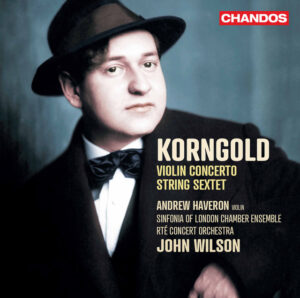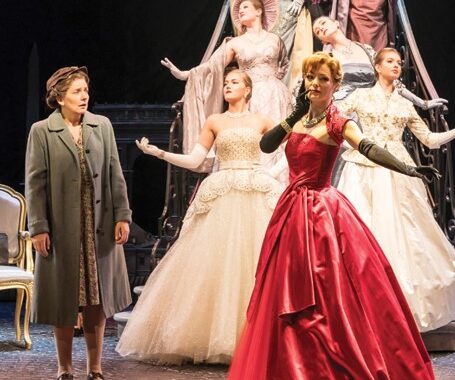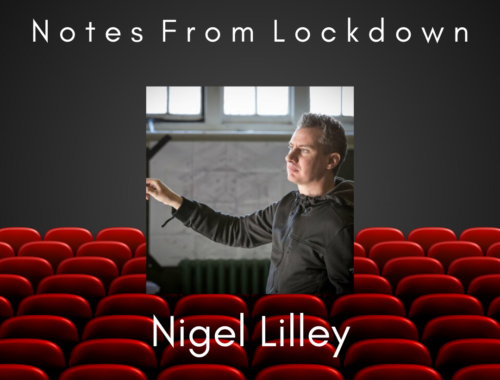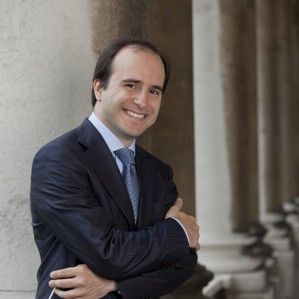GRAMOPHONE Review: Korngold Violin Concerto / String Sextet – Andrew Haveron, Sinfonia of London Chamber Ensemble, RTÉ Concert Orchestra/Wilson
 Andrew Haveron joins very select, indeed mighty, company – from Heifetz to Mutter and beyond – in the Korngold Concerto. But his collaboration with John Wilson in the nursing and shaping of strings lines from the concert master’s chair of Wilson’s orchestra (to say nothing of the Sinfonia of London) is incalculable. There’s a telepathy between them. And they have a very clear take on a piece born of Korngold’s own intention that it be ‘more Caruso than Paganini’. It sings.
Andrew Haveron joins very select, indeed mighty, company – from Heifetz to Mutter and beyond – in the Korngold Concerto. But his collaboration with John Wilson in the nursing and shaping of strings lines from the concert master’s chair of Wilson’s orchestra (to say nothing of the Sinfonia of London) is incalculable. There’s a telepathy between them. And they have a very clear take on a piece born of Korngold’s own intention that it be ‘more Caruso than Paganini’. It sings.
And it sings in that intimate, confidential way that in its first two movements anyway engenders a very real sense of melodies created in the playing of them – an improvisatory, almost casual, ease which requires of the player the illusion, at least, of something effortless and fluid. I love that there’s a modesty about Haveron’s performance. It’s so easy to overcook this piece. His unaffected delivery is key here and Wilson’s characteristic fastidiousness with regard to clarity and transparency ensures that his soloist (and subsequently all of us) is always aware of the harmonies that move beneath and around the solo line.
Haveron’s impeccable intonation and sweet tone really come into their own in the slow movement where those rapturously hushed ascents into the stratosphere are like whispered sweet nothings. The blue notes are indecently enticing, of course – but it’s the underlying shimmer of vibraphone that tips the balance into divine decadence.
The finale, I always think, sounds like it belongs to another piece but Wilson makes capital of that, romping away with the tempo and relishing that horn-led ‘Indiana Jones’ moment and, still more, the outrageous ‘tumble’ at the pay-off.
For anyone weighing up if they really need another account of the Korngold (even one as good as this) then the coupling is going to swing it. The 17-year old Korngold’s String Sextet is the headiest and most precocious of confections, the effusive love-child of Strauss’ Metamorphosen and Schoenberg’s Verkläte Nacht and something whose passionate imperative seems hardly credible from one so young.
It gets an absolutely cracking performance here from key members of Wilson’s newly reformed Sinfonia of London led by Haveron and the way in which it rides the impetus of Korngold’s invention ‘in the moment’, so to speak, positively lapping up the restless tonality and structural complexity, suggests the young composer impatient to get the notes down in the heat of inspiration. The slow movement (written first) foreshadows Die tote Stadt in its operatic reach, the harmony illuminated from within, or so it seems; the Intermezzo channels Mahler in its ländler-like diversions. You certainly know where you are, period wise. More Korngold will surely be forthcoming from Wilson – and to turn that tired old put-down of the Violin Concerto on its head, I’ve absolutely no doubt it will be more gold than corn.
You May Also Like

GRAMOPHONE: From Where I Sit – February 2021
24/02/2021
NOTES FROM LOCKDOWN: Nigel Lilley in Conversation
16/06/2020

